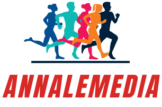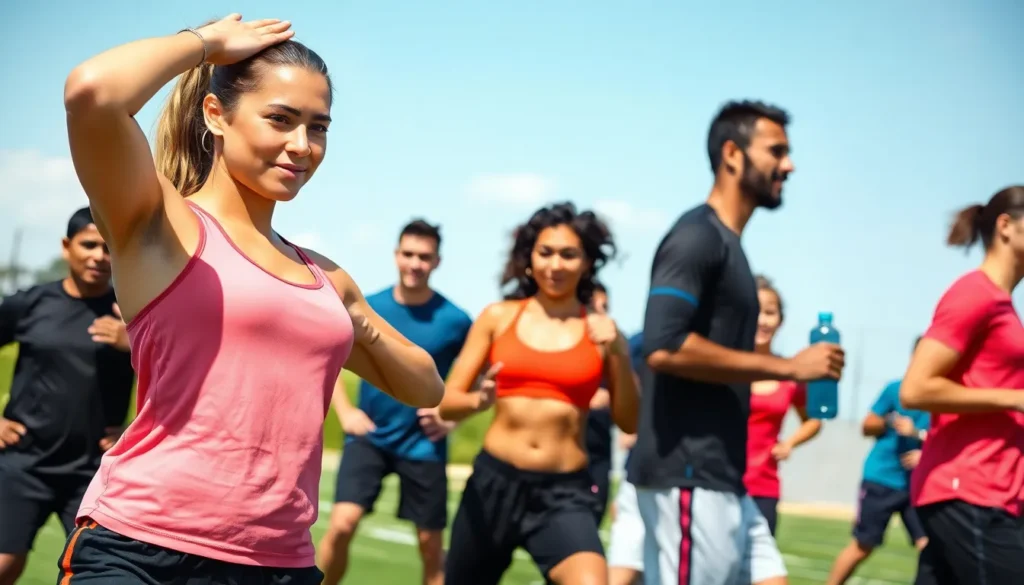In the world of sports, it’s not just about breaking records or scoring goals; it’s also about what fuels those incredible feats. Imagine running a marathon on nothing but donuts—sounds tempting but not exactly a winning strategy. Sports nutrition education is the secret sauce that transforms average athletes into champions, helping them understand how to properly fuel their bodies for peak performance.
Whether you’re a weekend warrior or a seasoned pro, knowing what to eat can make all the difference. It’s not just about pasta night before a big race; it’s about balancing carbs, proteins, and fats like a culinary tightrope walker. Dive into the essentials of sports nutrition education and discover how to optimize your training, boost recovery, and maybe even impress your friends with your newfound knowledge—because who doesn’t want to be the smart one at the post-game pizza party?
Sports Nutrition Education
Sports nutrition education plays a vital role in optimizing overall athletic performance. Athletes benefit significantly from understanding the impact of food choices on their training and competition. A well-informed athlete makes decisions based on nutritional science, leading to improved energy levels and physical output.
Knowledge about macronutrients, such as carbohydrates, proteins, and fats, is crucial. Carbohydrates serve as the body’s primary energy source, while proteins aid in muscle repair and growth. Healthy fats contribute to sustained energy and hormone production. Each nutrient type supports specific physical demands, and athletes who grasp this concept perform better during competition.
Learning about hydration is equally important. Proper fluid intake influences an athlete’s stamina and concentration. Additionally, understanding hydration strategies helps mitigate the risk of heat-related illnesses.
Sports nutrition education also enhances recovery practices. After intense training sessions, knowing which foods to consume aids recovery and muscle regeneration. Specific post-workout meals can optimize glycogen storage and reduce muscle soreness.
Furthermore, possessing nutrition knowledge fosters confidence. Athletes who can articulate their dietary needs often inspire those around them, elevating discussions in social settings. This educational foundation not only improves personal performance but also encourages a culture of health and well-being in sports communities.
In essence, athletes who prioritize sports nutrition education set themselves up for success. They navigate dietary choices more effectively. Those who invest time in learning will likely experience enhanced performance and overall health.
Key Components Of Sports Nutrition

Sports nutrition focuses on proper fueling strategies for enhanced athletic performance. It revolves around understanding various dietary elements crucial for an athlete’s regimen.
Macronutrients
Macronutrients play a vital role in sports nutrition by providing the energy needed for performance. Carbohydrates serve as the primary fuel source, fueling workouts and maintaining stamina. Proteins contribute to muscle repair and growth, essential for recovery after intense training sessions. Healthy fats support sustained energy release and hormone production, aiding overall health. Balanced intake of these macronutrients aligns with athletes’ specific needs, allowing for optimal performance and recovery.
Micronutrients
Micronutrients, although needed in smaller amounts, are equally crucial for athletic performance. Vitamins and minerals support processes like energy production and immune function. For instance, calcium and vitamin D strengthen bones and muscles, while iron enhances oxygen transport in the bloodstream. Antioxidants such as vitamin C and E protect against oxidative stress induced by exercise. A varied diet rich in fruits, vegetables, and whole grains supplies these vital nutrients, ensuring athletes maintain peak performance levels.
Benefits Of Proper Sports Nutrition
Proper sports nutrition provides athletes with numerous advantages, significantly impacting their performance and overall well-being.
Performance Enhancement
Athletes experience improved performance through the consumption of an optimal diet. Carbohydrates serve as the primary energy source, fueling high-intensity workouts. Proteins contribute to muscle repair, enabling faster recovery after strenuous activities. Healthy fats support sustained energy levels, preventing fatigue during extended training sessions. Individuals who prioritize hydration maintain concentration and stamina, enhancing their competitive edge. Knowledge of nutrient timing also allows for better preparation regarding meals around training and competition. Access to sports nutrition education equips athletes with the understanding to make informed food choices that lead to peak performance.
Injury Prevention
Proper nutrition plays a crucial role in injury prevention for athletes. Nutrient-dense foods supply the necessary vitamins and minerals, strengthening bones and connective tissues. Proteins aid the repair and growth of muscles, reducing the likelihood of strains and sprains. Antioxidants found in fruits and vegetables combat oxidative stress, a factor in many sports-related injuries. Regular intake of omega-3 fatty acids can also decrease inflammation, providing additional protection for joints. Athletes committed to balanced nutrition develop resilience against injuries and recover more quickly when issues occur. Prioritizing sports nutrition education contributes significantly to overall safety and longevity in sports.
Challenges In Sports Nutrition Education
Understanding sports nutrition education faces several challenges. Athletes encounter misconceptions and myths that cloud their judgment regarding nutrition.
Misconceptions And Myths
Many believe that high-protein diets are the ultimate solution for athletes. This notion ignores the importance of carbohydrates as the primary energy source. Others think supplements can replace a balanced diet. In reality, whole foods provide essential nutrients that supplements often lack. Additionally, some athletes fall for the myth that hydration is only necessary during exercise. Proper hydration must occur before and after workouts to maintain optimal performance. Addressing these misconceptions through education helps athletes develop a well-rounded approach to nutrition, promoting better health and performance.
Access To Resources
Accessing reliable information poses another challenge in sports nutrition education. Many athletes rely on the internet, where misinformation is widespread. Often, credible sources provide technical data that can overwhelm individuals new to the subject. Educational institutions may lack comprehensive courses tailored to athletes’ specific needs. Furthermore, local sports organizations might not offer workshops on nutrition. Developing partnerships between athletes and nutrition experts can enhance knowledge and provide clarity. Increased access to accurate resources empowers athletes to make informed dietary decisions, ultimately benefiting their performance and recovery.
Conclusion
Sports nutrition education is essential for athletes aiming to elevate their performance and overall health. By understanding the role of macronutrients and hydration, athletes can make informed choices that enhance their training and recovery. Prioritizing a balanced diet not only fuels workouts but also fosters resilience against injuries and promotes quicker recovery.
Moreover the knowledge gained through sports nutrition education empowers athletes to dispel common myths and misconceptions. Collaborating with nutrition experts can further refine their understanding and help them navigate the overwhelming amount of information available. Ultimately investing in sports nutrition education cultivates not just individual success but also inspires a community focused on well-being and performance excellence.

